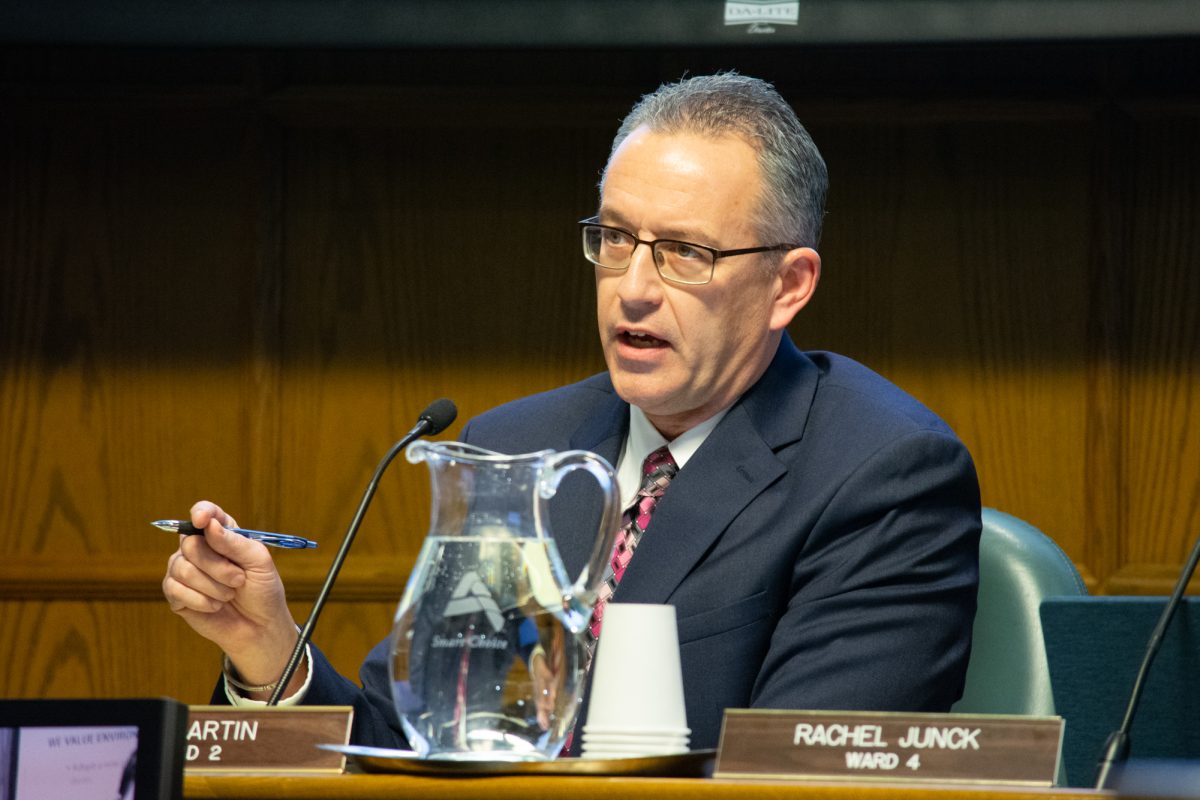LETTERS: Farming is not just ‘easy work’
November 16, 2009
As I walk around campus recently, I am becoming more aware of the misconceptions that students and faculty have about agricultural farmers and how much they work. I find this to be remarkable and quite aggravating considering Iowa State is a land grant university, which means it was originally created with an agricultural basis to better educate the farmers and farmer’s children in the state. As a student within the College of Agriculture and Life Sciences, I want to clear up a few of these misconceptions.
The most common misconception I hear from students and faculty is regarding how farmers only work about six months out of the year. Despite common opinions and beliefs, farmers are not just working when they are planting or harvesting crops. In the “off seasons,” they are doing maintenance on their equipment and preparing for the next season. In addition to crops, many farmers have livestock that need to be fed and taken care of every day because the farm animals, like many of us, want and need to be fed every day.
Another misconception of a farming profession is that it is “easy work” because all a farmer does is drive a tractor around all day long.
I am not sure where this misconception comes from, but there is a lot of physical labor involved in farming. While it is not as labor-intense as when farming practices were first started because we have machinery that assists us, there are many things that cannot be replaced with a piece of equipment. If a cow is struggling to deliver a calf, a farmer cannot simply just hook up a tractor and pull the calf; the farmer has to use his or her own hands and physical abilities to pull the calf.
There are also many things that influence a farmer’s yield for a crop that they have no control over, which makes it hard to know what their income will be. A farmer cannot predict a flood that will wipe out half of his or her acres, or that some new disease will take out half of his or her herd of cattle or come through his or her swine operation and take half of the hogs. So while a professor here at the university knows what their salary will be for the year, a farmer may or may not be able to make enough money to cover all the input costs [for example, crop seed, herbicides, pesticides, fertilizers, feed for their livestock, crop insurance, machinery payments, machinery repairs and even more] and then leave them with money for his or her family.
So before you say that farmers have it easy and they only work six months out of the year, think about all they do so that you can have that bowl of soup for lunch or you can have that plastic container to put your leftovers from supper in. There are many things everybody uses on a daily basis which are available because of farmers. Just a few of things are: Plastics, toothpaste, the food you eat, the juice or milk you drink, the ethanol or biodiesel you put in your vehicles, your medicines and daily vitamins, the sod in your yard, the clothes you are wearing, the leather seats in your car, the make-up women wear, the paper your newspaper is on, your hair brush, the deodorant or cologne or perfume you wear and the food or treats for your pets.
Agriculture and farmers have a huge part in everybody’s lives whether you admit it or not. So if you think it’s so easy to be a farmer, go be a farmer for a couple of years and see what it is like on the other side of your dinner plate.
See if you have what it takes to get your dinner from birth or planting to you and your family’s stomachs.
Amanda Dowell
Senior, Agriculture and Life Sciences Education






